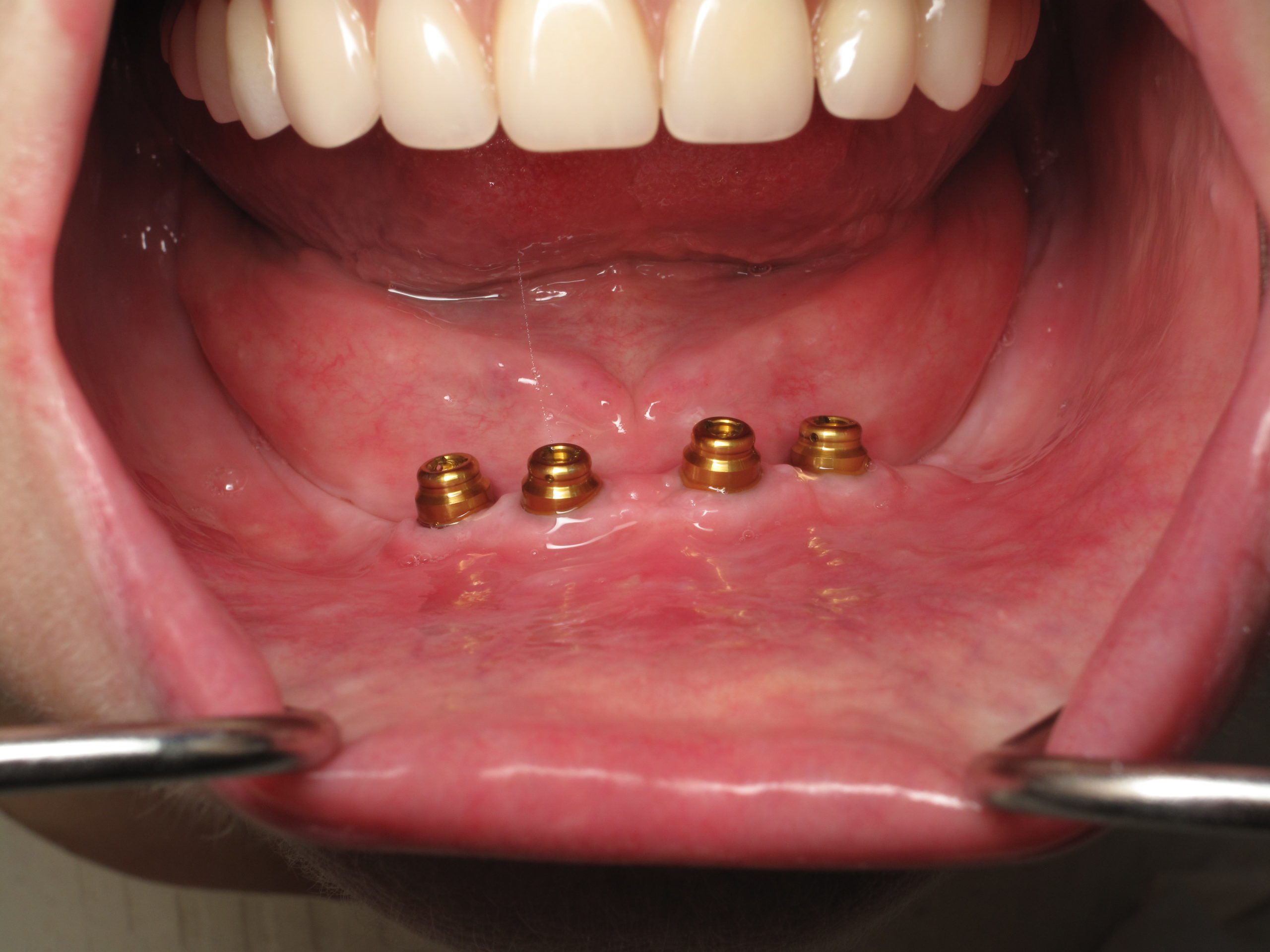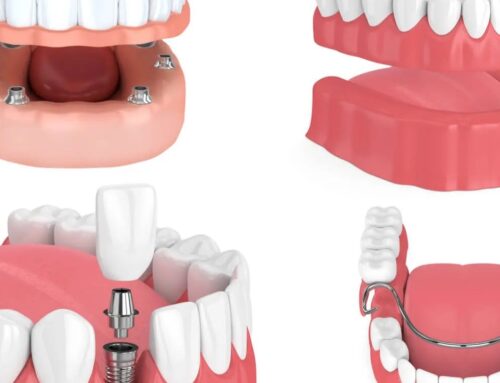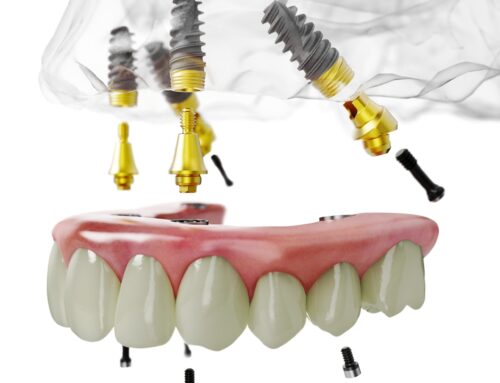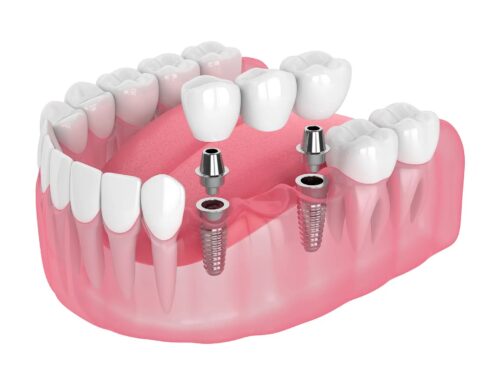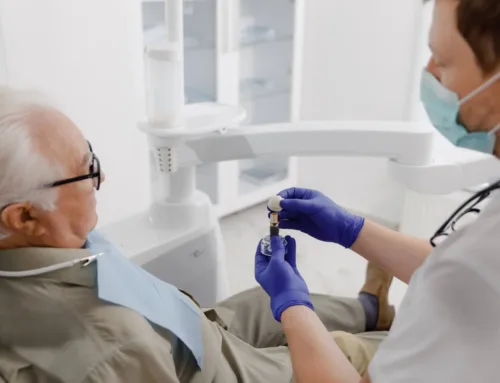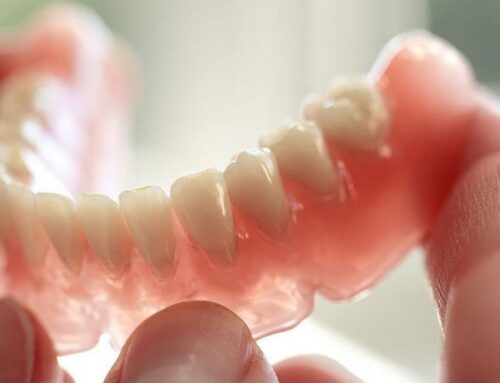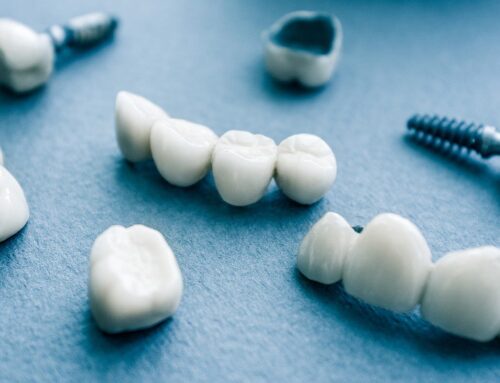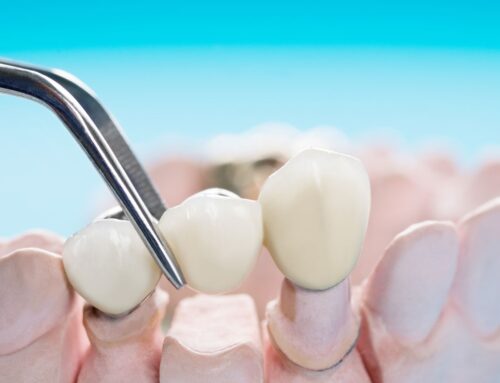Dental Implants Aftercare: Dos and Don’ts
A Dental Implant is the best permanent solution to replace missing teeth. It is an oral surgery performed by a periodontist or an oral surgeon in which a titanium screw or post is surgically implanted in the jawbone to replace the missing tooth’s root.
At the same time, this placement also strengthens the bone structure by fusing itself with the jawbone to create a solid foundation for tooth replacement. Once the implant has fused itself with the surrounding bone and is firm, a customized dental crown is attached to the post via an abutment. The new tooth looks and feels natural, just like the rest of the teeth, thus restoring a person’s smile and confidence.
Dental Implants not only support dental crowns, but dental bridges and dentures too. If a single tooth is damaged or missing, a single tooth implant could replace it. When multiple teeth that are adjacent to each other are missing, an implant-supported bridge or all on 4 dental implants is the best option to go for. But when a greater number or all the teeth are lost, an implant-retained denture will be your best bet.
No matter how many teeth you may have lost, dental implants can restore your natural smile. If you are wondering whether you need dental implants, a periodontist is the best person to seek advice from. After experiencing surgery most patients feel that the process is quite straightforward, and they don’t have to deal with much in the way of pain afterwards. The only thing you should be concerned about post-surgery is good oral hygiene. Once the treatment is over, it is the patient’s responsibility to keep their mouth and new implants healthy and hygienic to avoid any further problems. While a dental implant surgery is a pretty routine, standard procedure, to ensure they last as long as possible, it’s important you’re taking care of them properly.
If you have or are planning to get dental implants, your periodontist or dentist will advise you about the after-care instructions. But the following dos and don’ts will also guide you on what to expect once you have your dental implants.
Do:
Control Bleeding: A little bleeding from the implant site is expected once the surgery has been completed. To keep the blood loss to a minimum, follow these tips:
- Apply pressure to the affected area by placing a damp gauze pad and biting down on it for at least an hour.
- If needed, change the gauze pad every 20-30 minutes.
- Sit in an upright position, avoid laying down flat. But if you must lay down, make sure your head is elevated with a pillow.
- Avoid any strenuous physical activity.
- Don’t smoke.
Control Swelling: Swelling is a by-product of any surgery and becomes apparent only a day later. After a couple days have passed, the swelling reaches its peak and is expected to stay for a few more days. But here are some expert tips to ease it:
- Soothe the swollen area with an icepack immediately after the surgery.
- Repeat the process above for 10 minutes in intervals of 20 minutes (Do this only on the day of surgery).
- After the first day (24 hours), cold compress won’t make the swelling any better. Rather, moist heat could be more effective in reducing it further.
Take Painkillers: The local anesthetic given by your surgeon only lasts a few hours after the surgery, so it is likely that you might start experiencing pain later in the day. For pain relief, your doctor may have suggested some pain medication that should be taken as instructed. But if not, over-the-counter medication usually work in such scenarios. Slowly and gradually, as the swelling subsides, so should the pain.
Eat Soft Foods/Drink Plenty of Fluids: For the first week after surgery, go for healthy options like fruit juices, lemonades, water, etc. as consumption of cold drinks is advised. Drink plenty of water and eat foods that are nourishing and easy to swallow, like oats and soup. Most people can return to their normal diets after 7-10 days.
Make Sure You Rest: “When You’re Sick, Rest is Best” should be your daily anthem until you heal. Taking good time to rest will not only accelerate healing but it will also rejuvenate your body and soul. Also, avoid any physical exertion or tough activity as that may encourage bleeding.
Practice Good Oral Hygiene: Good oral hygiene is directly proportionate to faster healing and zero chances of infection. If your surgeon has prescribed a mouthwash, use it as instructed but avoid rinsing rigorously. From the second day, warm salt-water rinses are recommended 4-5 times a day and especially after meals. You can brush your teeth as usual, but just be cautious and gentle around the implant area.
Take Antibiotics: If your surgeon has prescribed antibiotics, make sure you follow the medicine course as directed. Antibiotics are important to control infection and must be taken as prescribed.
Let it Heal: The implant site generally heals with time, given you are practicing good oral hygiene and making healthy lifestyle choices. Stitches, if used, are either soluble or are removed by the doctor after one to two weeks. After surgery, the implant fuses with the jawbone which means that it completely bonds with it, thus becoming a part of the mouth. This process generally takes between 3 to 6 months, or longer in special cases. It is after this time that the dental crown or replacement tooth is permanently fixed to the implant via an abutment. But all this will work accordingly only if you make healthy lifestyle decisions.
Don’t:
Discourage Healing: Right after surgery, you will have the urge to check on the implant site with your tongue or fingers but avoid doing that. Try not to bother the implant site at least for a day or two. It is important for the area to form blood clots to stop bleeding, and voluntary actions like spitting, sucking, or smoking will only delay that.
Eat Hot Foods/Drink Hot Drinks: Right after surgery, do not eat or drink anything that is hot or spicy as that may irritate the surgical area. Eating just after the surgery is also not recommended. Try to wait until the effects of local anesthesia have subsided. There’s no doubt that eating proper food would be tough for the first few days but eating soft, healthy food that nourishes the body will accelerate healing. Obviously you’ll need to stay away from anything sticky and/or hard like candies, popcorn, nuts and seeds, fruits that have seeds like berries, chewy meats, etc. as they might stick somewhere between teeth and cause infection. Also, alcohol consumption is off the list for a couple of weeks.
Smoke: Smoking isn’t bad, it’s the worst. Whether your body is healing or perfectly normal, smoking will worsen your health in any case. Nicotine, which is the addictive substance in tobacco, constricts the blood vessels when it enters our body. This reduces blood flow to the tissues and proper flow of blood within the body is necessary for good health and healing. When the blood flow is restricted, so is healing and this can deteriorate oral health drastically. Because smoking won’t allow the implants to heal, it may cause the surgery to fail in the long run. Cutting out on nicotine will not only help fasten the healing process but improve your overall health too.
While dental implants can be a life changer for some, their efficacy completely depends on how well they are taken care of. They aren’t as painful as tooth extractions, or a root canal treatment and their procedure is easier too. Therefore, the process of healing and aftercare is also simple and if followed properly, the results might last a lifetime. The only task for the patient is to remain committed towards after-care (following the dos and don’ts above) and to continue to practice good oral hygiene. Also, regular visits to the dentist are a must to make sure that the implants are healing well.
To learn more about dental implants, dental implant cost or to know if you could be a potential candidate for them, book a free initial consultation at Georgian Dental today by giving us a call at 705-739-6725. Whether you’ve lost one tooth or multiple ones, we promise to help you get your natural smile back!
Appointment Request
If you’re interested in any of our procedures, and would like to meet with one of our dentists to discuss options, costs and get additional information, complete this short form and we’ll give you a call to arrange for a no-obligation appointment at our Barrie clinic.
